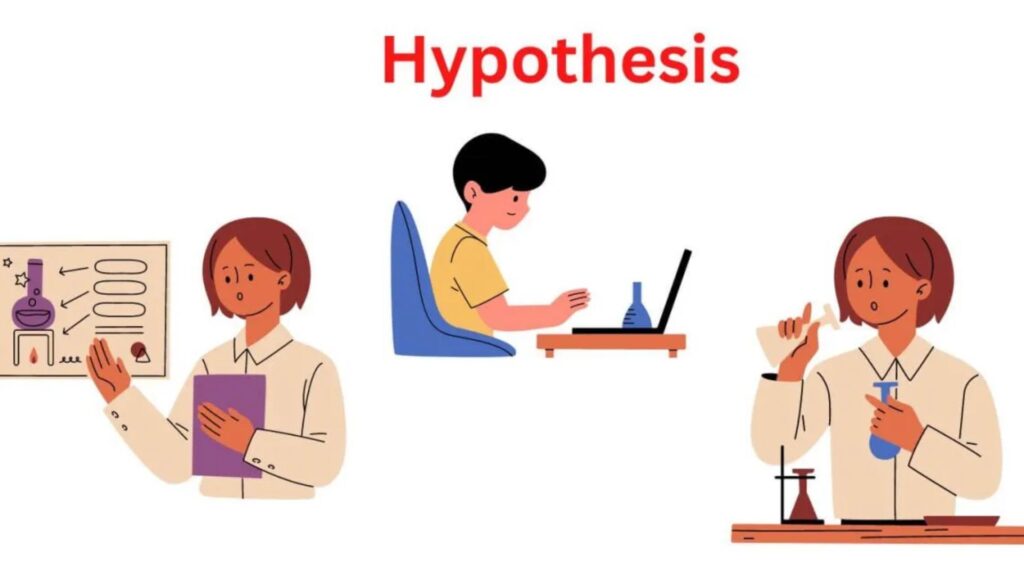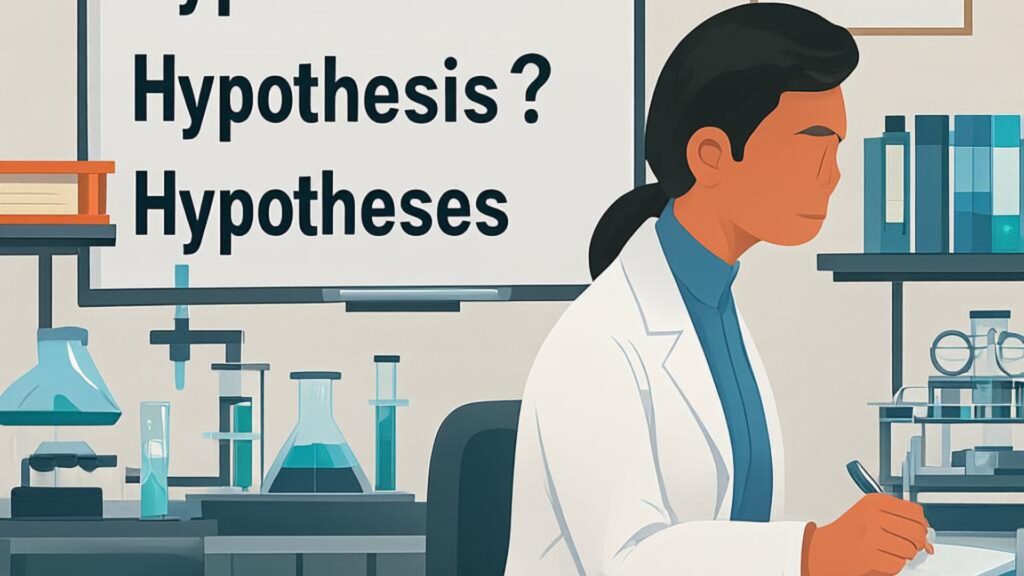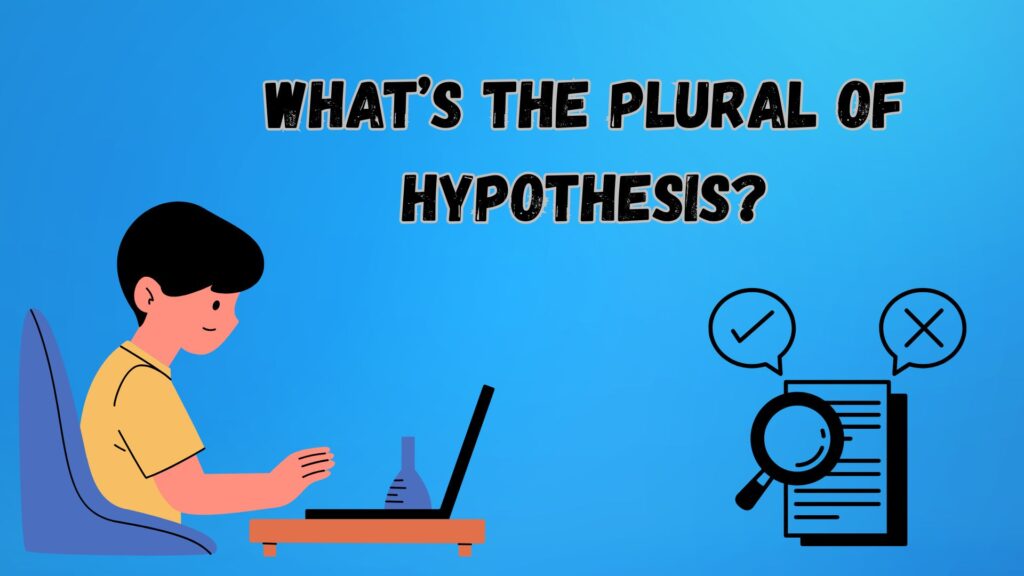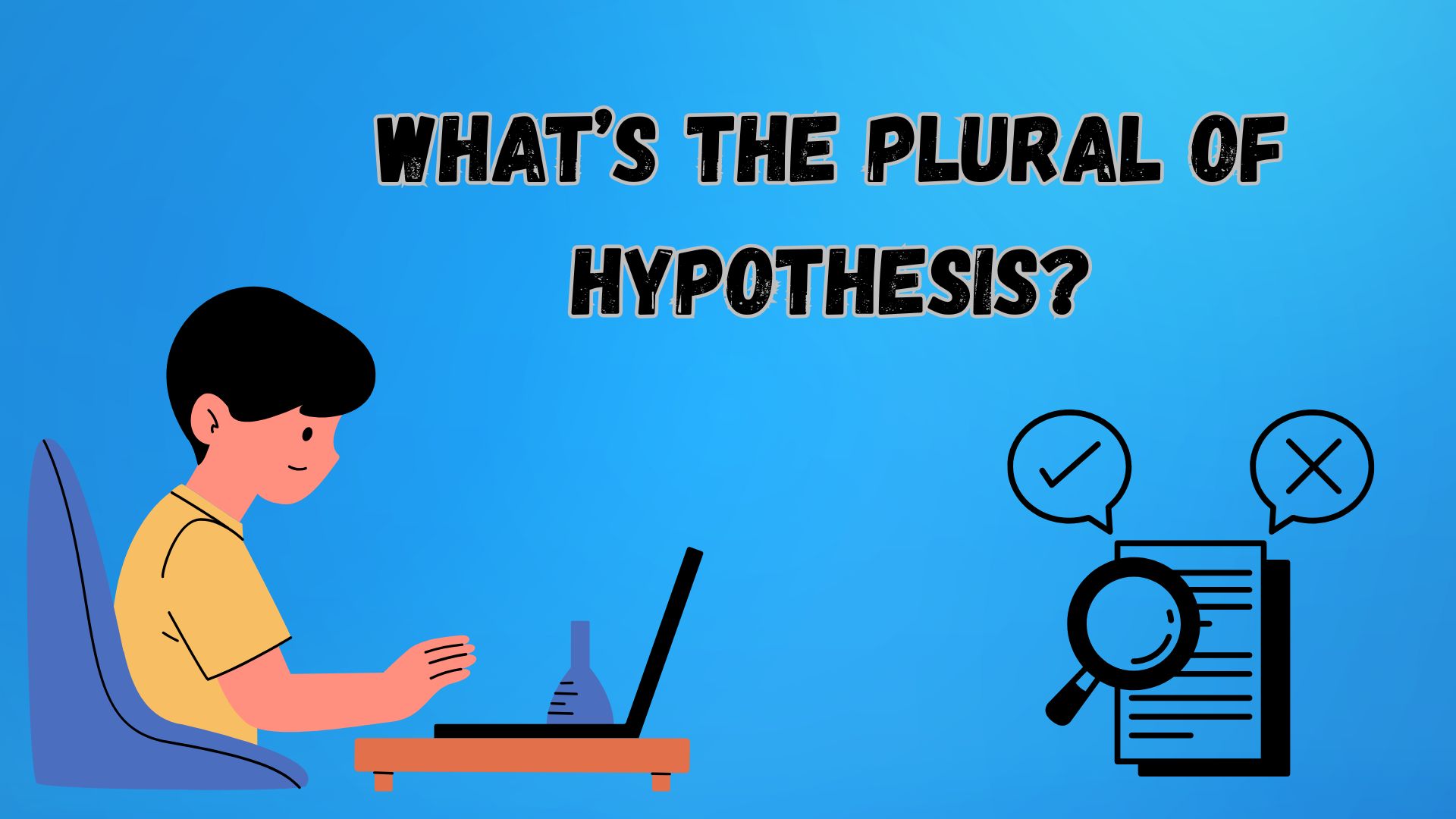Ever stumbled while saying “the hypotheses suggest…” and wondered if you were even using the word correctly? You’re not alone. Understanding the plural of hypothesis is one of those small language hurdles that trip up even fluent English speakers—especially in scientific or academic writing.
Let’s unpack it with examples, logic, a bit of Greek, and plenty of useful alternatives.
What Is a Hypothesis?

Before diving into plurals, it’s worth understanding what a hypothesis actually is.
A hypothesis is a testable idea or assumption proposed to explain an observation, phenomenon, or scientific problem. It serves as the starting point for experimentation or investigation. Think of it as an educated guess that needs to be tested.
🔬 Example:
“The researchers proposed a hypothesis that water levels rise due to lunar activity.”
So, What’s the Plural of Hypothesis?
The correct plural of hypothesis is hypotheses.
Yes, it’s irregular. That’s because the word comes from Greek, and in English, many Greek-derived nouns ending in –sis form their plural by changing –sis to –ses.
So, just like:
- Thesis → Theses
- Crisis → Crises
- Diagnosis → Diagnoses
We also get:
- Hypothesis → Hypotheses
Greek Roots: Why It’s Not “Hypothesises”
The word hypothesis is rooted in ancient Greek. It combines:
- Hypo (ὑπό) meaning under or beneath
- Thesis (θέσις) meaning a proposition or placing
So, hypothesis literally means “a proposition placed under” — something beneath the surface waiting to be proven. Because of its etymology, its plural follows Greek grammar rules, not standard English ones.
✅ Correct: “We tested five hypotheses during the experiment.”
❌ Incorrect: “We tested five hypothesises.”
How to Pronounce “Hypotheses”

Let’s tackle pronunciation, too. The word “hypotheses” sounds like this:
High-PAW-thuh-seez
/haɪˈpɑː.θə.siːz/
It might look intimidating, but say it aloud a few times, and it becomes second nature.
15 Scenario-Based Ways to Use “Hypotheses”
Let’s get practical. Here are 15 real-world examples using “hypotheses” or alternate phrases when you want to sound natural, accurate, and maybe even a little polished:
1. Multiple Hypotheses in Research
Email from Dr. Patel to her team
Subject: Preparing for the Climate Study
“Hi everyone, please finalize your hypotheses by Friday. We’ll begin testing variables in phase two.”
2. Based on Previous Hypotheses
“This experiment builds on our earlier hypotheses about soil composition and plant growth.”
3. Formulating New Hypotheses
“Before drawing conclusions, the lab team must first generate multiple testable hypotheses.”
4. Supporting or Refuting Hypotheses
In a report summary
“Our findings do not support the original hypotheses, suggesting a need to revisit the methodology.”
5. Alternative to Saying Hypotheses: “Assumptions”
“Our working assumptions about traffic patterns need further verification.”
6. Using “Theories” When Ideas Are Well-Established
“These ideas have matured from mere hypotheses into full-blown theories over the last decade.”
7. Referencing Multiple Proposals
“The panel reviewed all submitted proposals and hypotheses before approving the grant.”
8. In a Classroom
Professor Monroe to students
“Submit your group’s three hypotheses about ocean currents in Google Classroom by 6 PM.”
9. Formal Writing: Scientific Article
“These data align with the hypotheses stated in section 2.3 of our original submission.”
10. Using “Preliminary Ideas” in Business
In a product strategy meeting
“Let’s treat these features as preliminary ideas—hypotheses we’ll validate through user testing.”
11. When Discussing Predictions
“Our model makes several hypothesis-driven predictions about user behavior.”
12. Switching with “Educated Guesses” in Informal Settings
Science fair note
“Each student must submit two educated guesses before starting the experiment.”
13. Using “Speculations” in News or Editorial
“These are mere speculations, not supported by confirmed hypotheses.”
14. Discussing Competing Theories
“Of the five competing hypotheses, only two were supported by the data.”
15. Citing Sources in Academic Work
“As described on Wikipedia, hypotheses serve as a framework for empirical investigation.”
Related Irregular Plurals You Should Know

Here’s a handy list of irregular nouns ending in –sis and their plural forms:
| Singular | Plural |
|---|---|
| Hypothesis | Hypotheses |
| Thesis | Theses |
| Crisis | Crises |
| Diagnosis | Diagnoses |
| Analysis | Analyses |
| Synopsis | Synopses |
| Oasis | Oases |
| Nemesis | Nemeses |
Quick Usage Tips
- ✅ Use hypotheses only when referring to more than one testable idea.
- 🔄 Avoid adding “-es” or “-s” directly. That’s for regular plurals.
- 🔊 Practice saying “hypotheses” to boost your confidence in both writing and speaking.
Final Thoughts
Whether you’re working on a scientific paper, delivering a presentation, or just trying to sound accurate in your wording—knowing the correct plural of “hypothesis” is crucial. It’s more than a grammar rule. It’s a reflection of clear, educated communication.
Remember: one hypothesis, many hypotheses.

